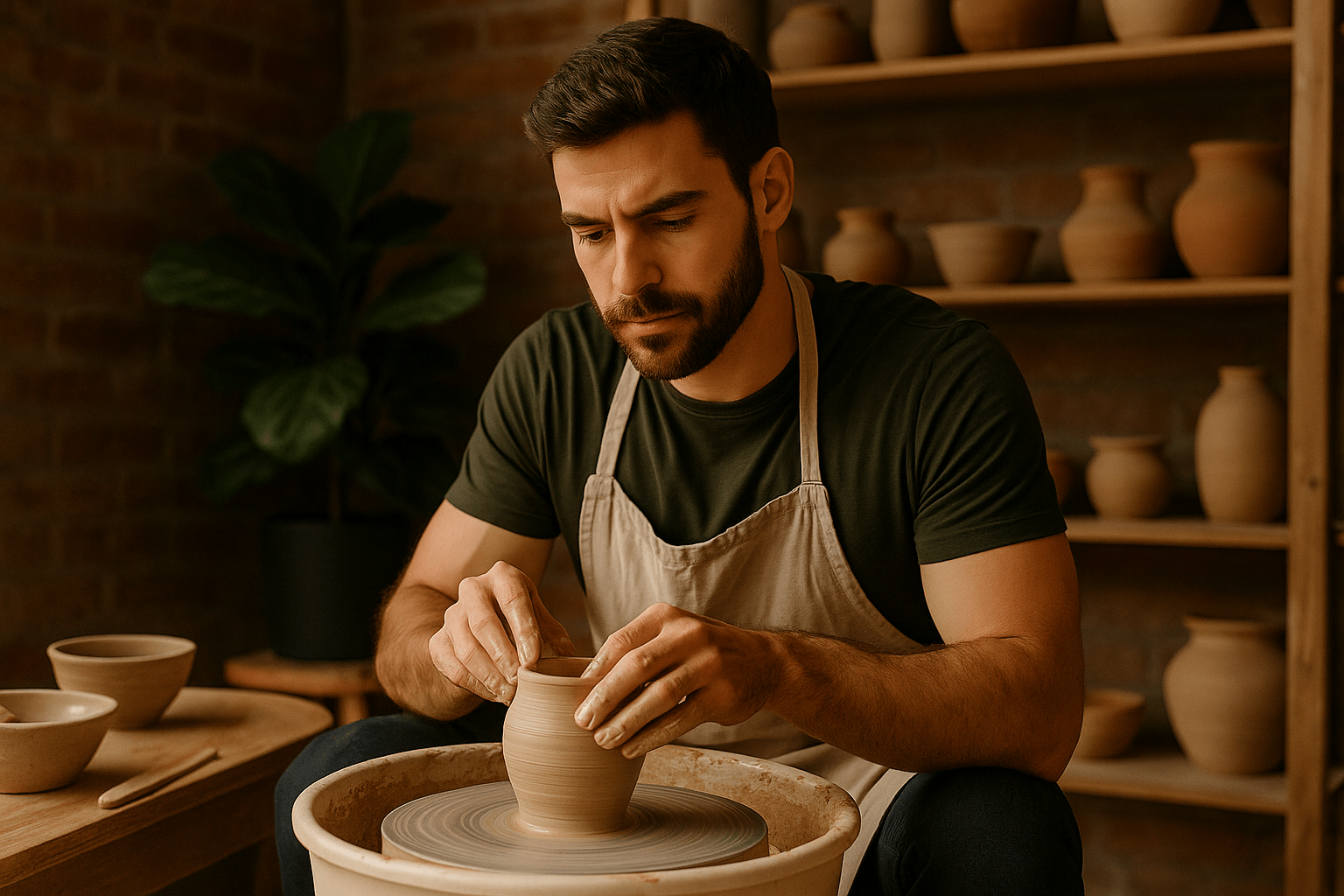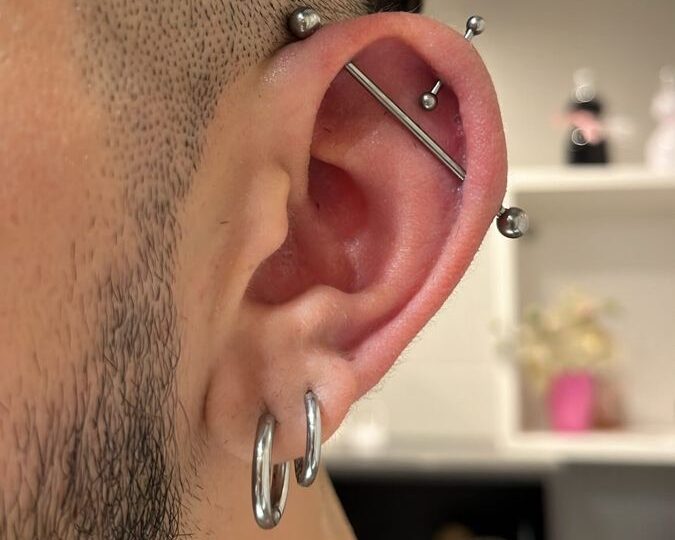
Elegance in Rebellion.
Own the Edge.
The Lost Art of Hobbies: Why Every Man Needs One Outside Work

There’s a weird badge of honor floating around now: “I’m too busy for hobbies.” It’s said with a half-smile, like being swallowed by work is something to brag about. The truth is uglier and simpler — being busy is a poor substitute for living. When your free hours are reduced to scrolling feeds and rehearsed weekend recovery naps, you’re not winning. You’re surviving.
This isn’t a guilt trip. It’s a reality check. Hobbies aren’t luxuries. They are one of the few reliable ways a man can stay sharp, grounded, and actually interesting. The lost art of hobbies isn’t about nostalgia; it’s about reclaiming a part of yourself that quietly refuses to be defined solely by a job title.
Work fills time. Hobbies fill life.
We’ve been trained to equate value with productivity. If something doesn’t return in rupees or accolades, it’s dismissed. That’s the first lie: the idea that only measurable output counts. The second lie is even more damaging: believing that time spent outside work is wasted. Men who carry those two beliefs slowly devolve into a single-note life — mornings of coffee and commute, days of meetings and tasks, evenings of exhaustion. Weekends become recovery shifts instead of recharging rituals.
Hobbies resist that dulling. They’re not escape routes. They’re repair kits.
Take curiosity, for example. It’s easy to forget that most skill, creativity, and mental resilience begins with simple curiosity: wanting to know how a thing works, wanting to get better at it, wanting to feel a small spike of satisfaction when your hands produce something. Whether that’s a melody you finally get right on guitar, a tiny pot you shape on a wheel, or the first long ride that leaves you unexpectedly exhilarated — these moments matter.
They matter because they grow parts of you that cannot be measured by quarterly reports.
There are three practical reasons to pick up a hobby, and they’re worth repeating because every man who’s ever been trapped by the work-collapse cycle needs to hear them:
- They restore mental energy — the right kind of activity pulls you out of problem-think and into process-think. Tasks that require focus but aren’t stressful let the brain reset.
- They build quiet discipline — practice becomes consistency, and consistency turns into a muscle that helps you show up better at work and life.
- They deepen your personal identity — outside of titles and roles, hobbies remind you who you are when no one’s watching.
Now for the part men often skip: how to choose one that actually sticks.
Start with low friction. The loudest excuse will always be “I don’t have the time” or “I can’t afford it.” Both are manageable. Hobbies scale — you can begin with the bare minimum and expand later. The whole point is the process, not the gear.
Here’s a practical approach I give to people who tell me they want a hobby but don’t know where to start:
- Pick three options from different buckets (one physical, one creative, one tactical).
- Test each for four weeks — give each a minimum of two hours per week. No judging. Just showing up.
- Drop or keep — the one that makes the week better, not more hectic, is the winner.
To make this less abstract, here are detailed, realistic hobby suggestions with practical first steps and low-cost entry points.
Creative and hands-on (great for patience, stress relief, and a sense of craft)
Pottery / Clay Craft
- Why it works: tactile, meditative, instant sensory feedback. You’re shaping something with your hands — it’s primal and satisfying in a way your laptop never will be.
- How to start: join a weekend studio class or buy a small hand-building kit. You can learn coil and slab techniques before touching a wheel.
- The reality: your first attempts will be messy. Enjoy that. The point isn’t to become a master potter in a month; it’s to have a space where your hands do something real.
Sketching / Drawing
- Why it works: improves observation, clears the mind, and you can do it anywhere.
- How to start: a pocket sketchbook and a 2B pencil. Draw for ten minutes a day. Don’t aim for masterpieces. Aim for practice.
- The reality: improving here sharpens how you see details in life — which changes how you show up, even in meetings.
Woodworking / Small Projects
- Why it works: problem-solving + craft. Fixing or building something teaches resourcefulness.
- How to start: a small toolkit, a handsaw, sandpaper, a cheap plan for a bench or shelf. Begin with one project.
- The reality: you’ll learn to measure, to repair, to work with tolerance. It gives a practical satisfaction that’s hard to match.
Photography (the slow version)
- Why it works: trains your eye and forces you to be present.
- How to start: use your phone camera with a simple rule — go out at golden hour once a week and take thirty photos. Study what looks good and why.
- The reality: it’s a hobby you can scale into gear if you want, but the core lesson is composition and patience.
Ceramics and pottery made the cut for your featured image because it’s an ideal visual of a hobby that’s both hands-on and meditative. It shows process, not performance — and that’s the whole point.
Physical and movement-based (great for energy, mood, and clarity)
Cycling
- Why it works: cardio, exploration, and it’s scalable from urban commutes to weekend long rides.
- How to start: a reliable second-hand hybrid or road bike, a helmet, a lock, and a route you enjoy.
- The reality: cycling isn’t just fitness — it’s a way to shift perspective physically and mentally. A long ride gives the same kind of clarity that meditation promises, but with endorphins.
Running / Trail Running
- Why it works: immediate to begin, minimal equipment, excellent for clearing the head.
- How to start: a running schedule (couch to 5K works) and a decent pair of shoes.
- The reality: the discipline of small runs accumulates. The consistency becomes a backbone for other habits.
Rock Climbing (indoor)
- Why it works: problem-solving under physical pressure, community, and focus.
- How to start: a weekly intro session at a local climbing gym.
- The reality: it forces you to manage fear and plan movement — transferable skills back to work and life.
Squash or Badminton
- Why it works: social, high tempo, competitive enough for a good sweat.
- How to start: join a group or book a court and bring a friend.
- The reality: these sports are short, intense, and social — ideal if you hate the idea of solo gym sessions.
Tactical, focused, and skill-based (great for competence and do-it-yourself triumphs)
Cooking and Grilling
- Why it works: immediate reward, practical, social. Feeding people is a masculine skill that’s undervalued.
- How to start: learn five core techniques (pan-searing, roasting, braising, eggs, and a basic sauce). A single high-quality skillet will change your home-cooking game.
- The reality: cooking well gives you an edge in hospitality and self-respect. It’s a life-skill with visible outcomes.
Home Repair / Basic Carpentry
- Why it works: saves money, builds confidence, and reduces dependence.
- How to start: a starter foster-style toolkit, a YouTube channel watched with intention, and one small project (build a shelf).
- The reality: the skill set grows; your apartment becomes yours in the literal sense when you can fix it.
Mechanical / Bike Restoration
- Why it works: methodical, rewarding, and you end up with a machine you can ride.
- How to start: source a cheap vintage bike, buy a manual, and tackle one system at a time (brakes, wheels, drive-train).
- The reality: you’ll learn patience and troubleshooting, plus you get the satisfaction of something you can ride into town.
Coding / Electronics (if you like systems)
- Why it works: building small tools or automations scratches a powerful itch to create useful things.
- How to start: a short course or weekend project (a simple website, a Raspberry Pi task).
- The reality: builds problem decomposition skills and gives a modern maker’s outlet.
Collecting & Curatorial Hobbies (great for context, taste, and narrative)
Vinyl Records
- Why it works: taste cultivation and a reason to slow down and listen.
- How to start: pick a genre you like, buy a few records, and learn about pressing differences.
- The reality: collecting becomes a story you tell — which is part of why hobbies are social currency.
Books / Nonfiction Deep Dives
- Why it works: expands perspective and provides up-level material for conversations.
- How to start: a reading list (choose five books for the year). Schedule two 30-minute reading sessions weekly.
- The reality: this hobby translates directly to ideas and confidence in conversation.
Model Kits / Scale Building
- Why it works: focused tasks, small victories, and craft.
- How to start: a beginner’s model kit, glue, patience.
- The reality: these are meditative and reward meticulousness.
Now for the quiet truths that separate the hobby you’ll quit from the hobby you’ll keep.
- The hobby you keep is the one that fits your life, not the one you forced into your life. If your schedule is chaotic, choose practice-friendly activities (photography, sketching, reading) over something that needs rigid blocks of time.
- Dread kills hobbies faster than boredom does. If the idea of your chosen hobby fills you with obligation, it’s the wrong pick. Hobbies should pull you, not push you.
- Social hooks help consistency. A weekly class or a group ride increases sticking power. Humans are social animals — accountability and company keep you showing up.
Real stories — short, clean, and useful
There’s a man I know — call him Raj — who worked 60-hour weeks in a tech job and had no time for life. He picked up cycling because his friend dragged him. Ten months later, he’d lost weight, was sleeping better, and had a whole new set of friends. The best part? His boss noticed his calmer emails and clearer decisions. Raj didn’t get a new job because he cycled. He cycled, and the rest followed.
Then there’s Arjun, who learned to cook after his marriage. He started with eggs and pasta. He found the ritual of chopping, timing, and tasting oddly meditative. Suddenly Sunday nights were projects to look forward to — and his confidence around people shifted. He became the kind of man who showed hospitality, not just someone who outsourced meals.
Stories like these aren’t inspirational fluff. They’re practical proof: hobbies change daily rhythms, and daily rhythms change lives.
How to make the hobby stick (the method smart men use)
- Micro-block the calendar — treat it like work for the first 90 days. Schedule two 30–45 minute sessions per week and defend them.
- Start with a small, visible win — a song you can play through, a dish you can pull off, a shelf you can build. Momentum is more important than mastery.
- Document the progress — photos, short notes, or a simple log. Nothing fancy; just evidence you’re improving. It keeps motivation honest.
- Join one community — a class, online group, or local meet-up. It turns your hobby into a social habit, and social habits last.
- Don’t monetize it immediately — if you turn your hobby into a side hustle too early, you risk killing the joy. Monetize later if it feels natural.
Let’s be blunt about something: you will suck at the start. That’s the contract you sign when you take up anything new. The man who refuses because he will be bad is the one who never learns. The point of a hobby is to get better in ways that work for you, not to audition for the world.
A hobby is a private place to grow.
And the final, practical nudge: if you want an honest starter kit for a few hobby types (minimal expense, maximum return), here’s a compact shopping list you can act on today — nothing flashy, all functional:
- Beginner acoustic guitar + tuner + online course (or a teacher for 4 lessons)
- Entry-level sketchbook + pencil set + small online course or local class
- A good skillet + three pantry staples and three starter recipes for cooking
- Basic toolkit (Foster-style 100-piece) + one shelf plan for a first project
- A decent hybrid bike (used is fine) + helmet + one weekly route plan
Buy one thing, schedule time, and begin. You don’t need to tell anyone if you don’t want to. You do need to show up.
This is not about being good at everything. It’s about being alive in a way that’s not measured by your LinkedIn metrics. Hobbies are the quiet rebellion against the idea that every hour must be monetized. They’re the proof that your life is bigger than your job, your title, or your salary.
So pick one and start. Build the small pieces of a life that are yours. The rest — sharper thinking, better sleep, more stories, calmer presence — will follow.






